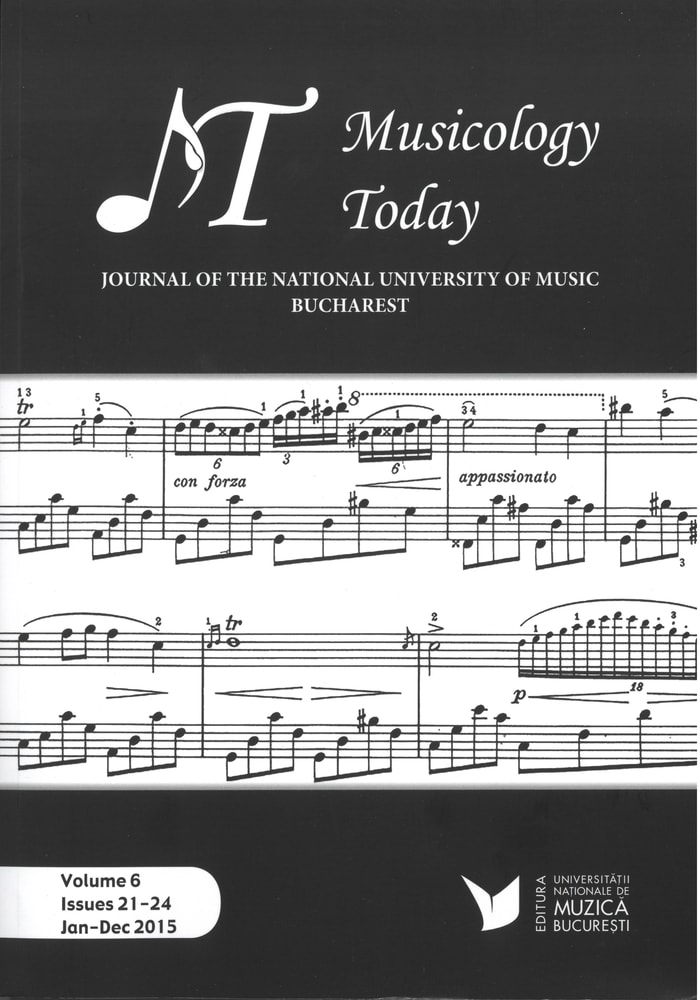Die Geburt eines neuen melos
The Birth of a New Melos
Author(s): Thomas BeimelSubject(s): Music
Published by: Editura Universității Naționale de Muzică din București
Keywords: New Melos; fascist dictatorship; emotional aspect of music;
Summary/Abstract: For most people in the world there is no question: if there is music, there is melody. But for a composer who was born in Germany the subject is more complicated. In the time of fascist dictatorship, the emotional aspect of music served as an important tool for propaganda, in order to manipulate the masses. Subsequently, melody as conveyer of emotions fell into disrepute. In Germany till today any attempt to establish a new melos is regarded with scepticism. From the perspective of a composer living at the beginning of the 21st century, I find George Enescu’s work quite appealing. The Romanian composer developped different strategies in order to discover a new melos. Therefore, melody became a structural element of the musical discourse in works such as Prélude à l’unisson, Carillon nocturne, and the Sonata for piano in f-sharp minor. I’ll extend my analysis toward the composition of Myriam Marbe, Des-Cântec.
Journal: Musicology Today: Journal of the National University of Music Bucharest
- Issue Year: 6/2015
- Issue No: 21
- Page Range: 10-23
- Page Count: 14
- Language: German

